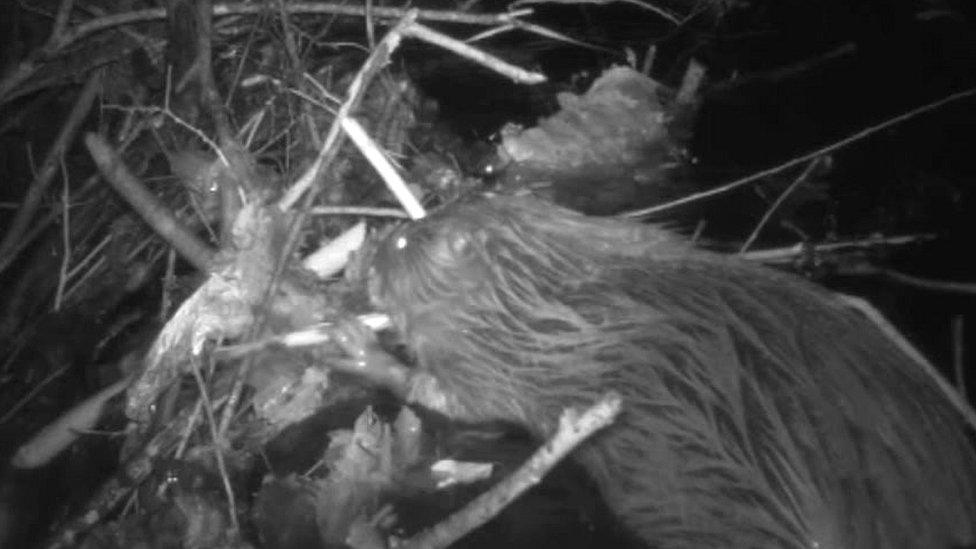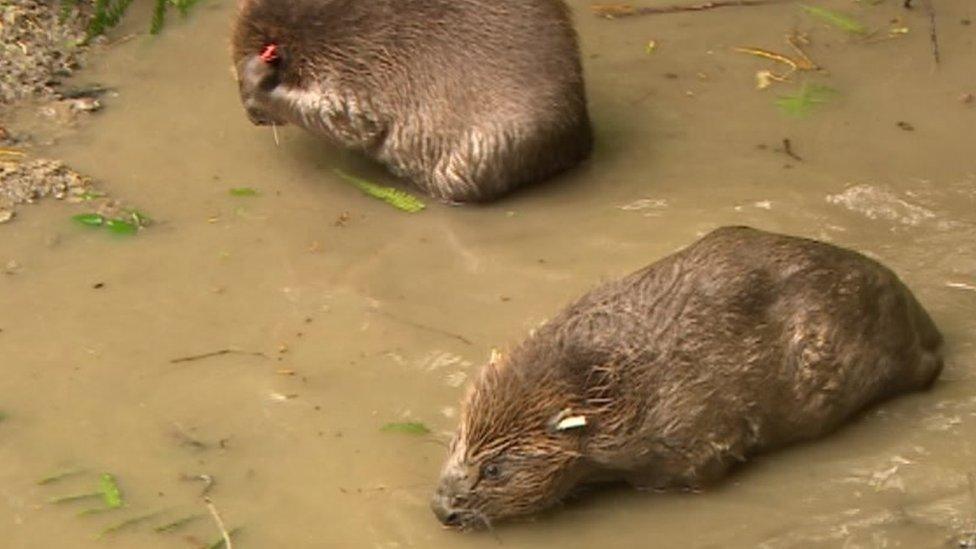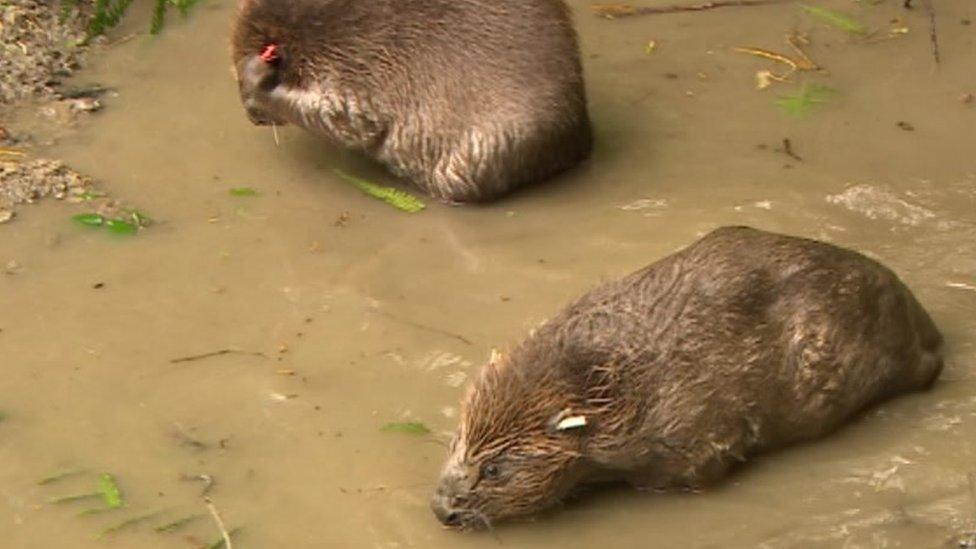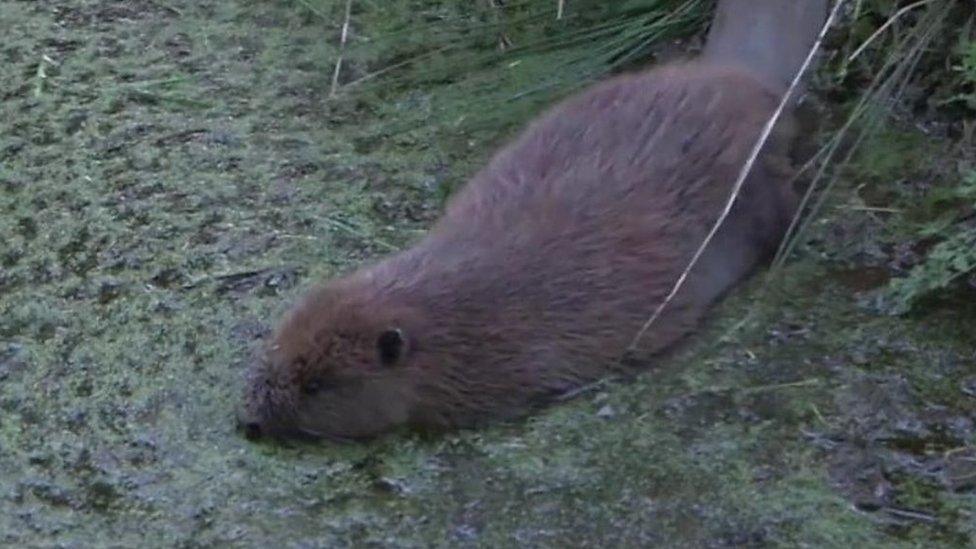Beavers in Gloucestershire's Forest of Dean 'settling in well'
- Published

Forestry England said trail cameras at the site showed the beavers were "dam building and tree felling" and had "settled in well"
A second pair of beavers released in the Forest of Dean as part of a scheme to tackle flood risk are said to be settling in well - and building dams.
The beavers replaced a pair introduced in 2018, the first in Gloucestershire for 400 years, as part of a wider plan to return the animal to the UK's wild.
But they had to to be trapped and moved after seven months when one was found to have tapeworm, a parasitic disease.
The new pair took their place at the same site near Lydbrook in the autumn.
Beavers were hunted to extinction in the UK in the 16th Century. But efforts have been made to reintroduce them to the wild in areas including Somerset, Yorkshire and Cumbria, while they have also been living wild in areas around the River Tay in Scotland for some years since escaping or being illegally released some years ago.
Part of the reason behind the schemes has been to see if the animals, which fell trees and dam streams and rivers and slow the flow of water, could provide a low-cost solution to flooding.
The first Eurasian beavers to be released in Gloucestershire were part of a group imported from Bavaria.
Released into a 6.5 hectare (16 acre) enclosure in July 2018, the pair were removed the following February after one tested positive for Echinococcus multiocularis (EM).
They are now living in a bio enclosure in Devon.

Two beavers released in the Forest of Dean in July 2018 were removed the following February due to tapeworm fears
Forestry England said their replacements had been captured in Scotland, from different areas of the River Tay.
It said the "necessary health checks" had been carried out and the female had been released in the autumn followed by the male a few weeks later.
Rebecca Wilson, from Forestry England, said cameras at the site showed the beavers were "dam building and tree felling" and had "settled in well".
"Nocturnal dam building is creating deep pools of water, slowing the brook's flow," she said.
"The tree felling followed by coppicing trees will bring benefits for a variety of wildlife that depends upon more complex habitats."
It is hoped the animals will help prevent flooding in the area by improving biodiversity and building dams and ponds.
The authority said it would be monitoring the "hydrological and ecological changes" the beavers make.
- Published18 February 2019

- Published24 July 2018

- Published24 July 2018
